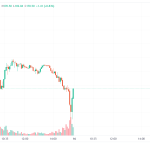What is Trading, types of Trading, How it works nifty 50 & bank nifty index, future & option (F&O)?
Trading For Beginners
Welcome to journeyoftrading. I wish to share the trading journey of my carrier. Whoever had a failed trading journey should forget the past. Today onwards, start a new journey together with me. Trading is not for a master trader; you also have trading potential. If you start any business, lots of ups and downs will come. Same as a trading journey, too.
Trading is not only a money-making platform. Its way of doing business. First, everyone should change their mindset. If you learn trading after you make a profit, you will also become a profitable trader.
Way of Beginners Thinking
Every beginner's point of view trades only for losses. Trading is not like gambling, betting, etc. If you do not take a risk, you are unfit for trading. Risk is like traveling. We are traveling on the road, and we know accidents will happen. But we can travel. Because I know about road safety and how to prevent it. As with trading, we also know the risk; take risks with proper risk management. You should be confident in your trading.
My trading journey also has lots of struggles, losses, stress, mental pressure, etc. When I start my trading career, I don’t have the knowledge. One thing I want to change is my situation and lifestyle. Lots of time I faced losses only. I’m not changing my decision. Continuously, I put in my efforts and learned. Whenever your mind feels too tired, remember one thing. I will do it. I can do it. That’s it.
Believe it or not, you also became a profitable trader. Trading is purely a passion for work. Who and all have passions, you are successful trader. Today, you failed again to restart. Today failure, tomorrow success.
What is trading?
Trading generally refers to the buying and selling of financial instruments such as stocks, futures and options, commodities, currencies, and derivatives. The primary objective of trading is to generate profit from short-term fluctuations in prices. It’s a variety of methods followed, as below mentioned.
Types of Markets:
1. Stocks
2. Future & options
3. Commodities
1.What is meant by stocks?
Shares or equity: when you buy a stock, you become a share holder of the company. It's not only buying and selling. When one company creates a share, more eligibility is required. Eligibility requirements point-wise are updated below.
- The company should have been listed on any other identified stock exchange. At least three years are required; otherwise, you are not eligible.
- Exchanges with country-wide trading at the latest are required for at least six months.
- Minimum average daily turnover required for 10 lakhs.
The above-mentioned criteria are the most important. The company's starting time to initially launch the share is called the initial public offering (IPO). This is for business purposes. Stock price fixation depends on company turnover. If you bought a share before, check the company's in-depth details. Companies with any other debits or developed companies need to be checked. These and all things will come under the share or stock
Stocks are not only for buying and selling. This is for your investment. Example, when you buying a land, current market rate and future rate you verify. Same as stocks, too. The most important thing The selling price is higher than the buying price. For example, the journey-of-trading company launched the shares. The buy price is 650 rupees. And hold for a long month. Now sell the shares for 700 rupees. This is called selling price more than buying price.
2. Future and Options:
Futures are standardized contracts to buy or sell a specified asset. Future & Options will define two categories.
- Call options (CE)
- Put options (PE).

What is meant by call options (CE)?
When is the is the market going to up buying for the market is going up.
What is meant by put options (PE)?
When is the market going to go down? Buying for the market is going down.
It’s both a buying and selling concept.
3.Commodities:
Commodities are raw materials or primary agricultural products that can be bought and sold.
Markets:
The share market function is based on SEBI (Security and Exchange Board of India). It works on two stock exchangers.
1. NSE: National Stock Exchange (the major stock exchange in India), with the Nifty 50 as its benchmark index.
2. BSE (Bombay Stock Exchange), one of the oldest stock exchanges in Asia.
NSE under it will come for Nifty 50, Bank Nifty, Midcap Nifty, Fin Nifty, etc. The top 50 companies performance in one index is called the Nifty 50, and the top 20 banks performance in one index is called the Bank Nifty.
Types of trading:
1. Investment (Low Risk and Less Rewards): A share to be held for a long period of time is called an investment.
2. Intraday (High Risk and High Rewards): Buying and selling within the same trading day is called intraday trading.
3. Swing trading (low risk and lower rewards) Shares to be held for a few days to several weeks are called swing trading.
4. Scalping (very high risk and very high rewards) Shares to be held for a few minutes or hours are called scaling.
Intraday Types:
1.Equity - Buying and selling of Individual stocks
2. Futures and Options (F&O): Nifty 50 and Bank Nifty Trading. call option (buying and selling), put option (buying and selling)
3.Commoditity - Buying and selling of Raw material & agriculture protect
Leave a comment
Your email address will not be published. Required fields are marked *


